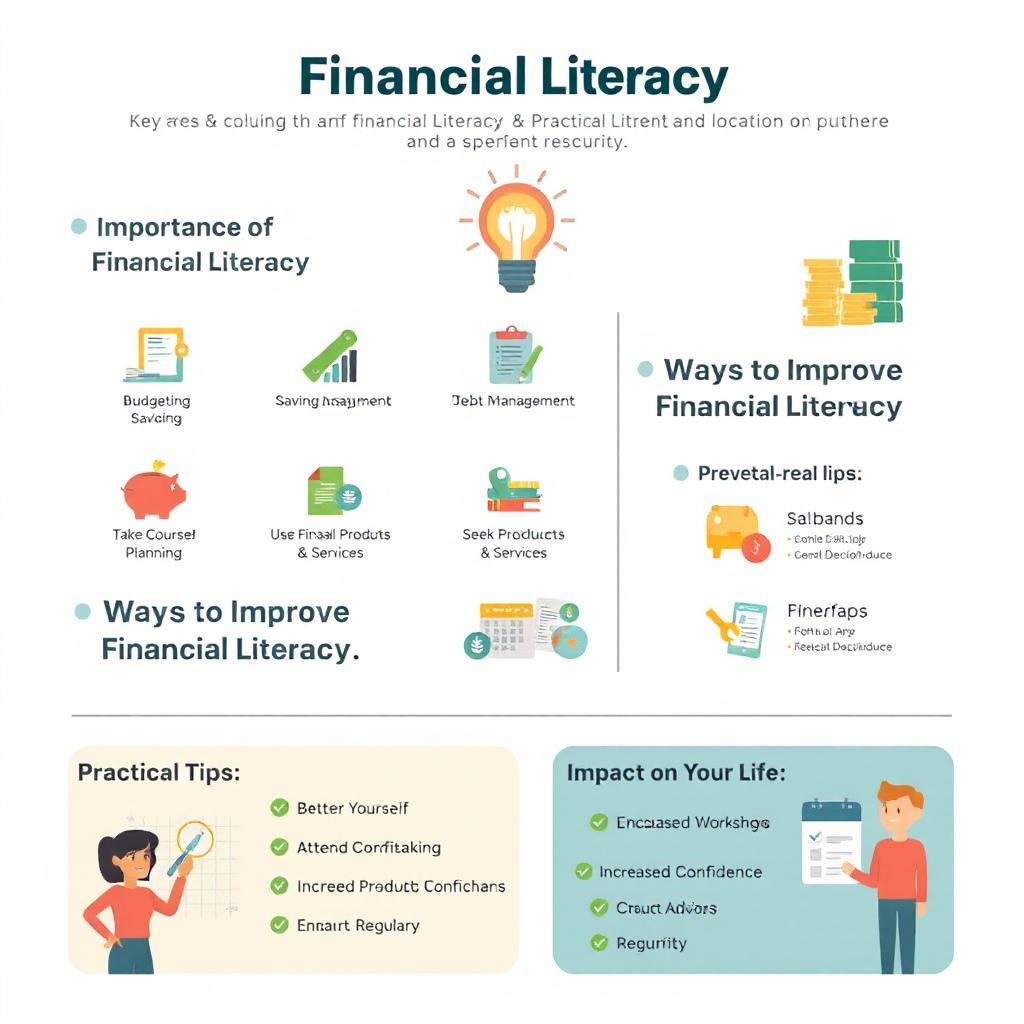Financial literacy is more crucial than ever in today’s complex economic environment. Understanding how to manage your finances effectively can impact various aspects of your life, from budgeting and saving to investing and retirement planning. Financial literacy empowers individuals to make informed decisions, avoid common financial pitfalls, and achieve long-term financial goals. This guide explores the importance of financial literacy and provides practical strategies to improve your financial knowledge and skills.
1. Understanding Financial Literacy
1.1. Definition and Scope
Financial literacy refers to the knowledge and skills needed to make informed and effective decisions about money. It encompasses a range of topics, including budgeting, saving, investing, debt management, and understanding financial products and services.
1.2. Why It Matters
- Empowerment: Financial literacy empowers individuals to take control of their financial future, make informed choices, and avoid unnecessary debt.
- Security: It helps in creating financial security by understanding how to manage expenses, build savings, and plan for retirement.
- Prevention: Educated individuals are better equipped to avoid scams, make sound investment choices, and navigate financial challenges.
2. Key Areas of Financial Literacy
2.1. Budgeting and Money Management
Understanding how to create and manage a budget is fundamental to financial literacy. It involves tracking income and expenses, setting financial goals, and making adjustments to stay on track.
2.2. Saving and Investing
Knowledge of saving and investing is essential for building wealth and planning for future needs. This includes understanding various investment options, risk management, and strategies for long-term growth.
2.3. Debt Management
Effective debt management involves understanding how to handle credit, loans, and other forms of debt. It includes strategies for paying off debt, managing interest rates, and maintaining a healthy credit score.
2.4. Retirement Planning
Financial literacy also involves planning for retirement. This includes understanding different retirement accounts, calculating future needs, and creating a strategy to accumulate and manage retirement savings.
2.5. Financial Products and Services
Familiarity with various financial products and services, such as insurance, mortgages, and investment accounts, is crucial for making informed decisions and finding the best options for your needs.
3. How to Improve Financial Literacy
3.1. Educate Yourself Through Reading
- Books: Read reputable books on personal finance and investing, such as “The Intelligent Investor” by Benjamin Graham or “Your Money or Your Life” by Vicki Robin.
- Articles and Blogs: Follow financial blogs and articles from credible sources to stay updated on financial trends and advice.
3.2. Take Financial Education Courses
- Online Courses: Enroll in online courses or webinars on financial literacy offered by platforms like Coursera, Udemy, or Khan Academy.
- Local Workshops: Attend workshops or seminars organized by community centers, libraries, or financial institutions.
3.3. Use Financial Tools and Apps
- Budgeting Apps: Utilize budgeting apps like Mint or YNAB (You Need a Budget) to track expenses and manage your finances.
- Investment Simulators: Experiment with investment simulators to learn about the stock market and different investment strategies without risking real money.
3.4. Seek Professional Advice
- Financial Advisors: Consult with a certified financial advisor for personalized advice and guidance on budgeting, investing, and retirement planning.
- Credit Counselors: Work with credit counselors to improve your understanding of credit management and debt reduction strategies.
3.5. Engage in Discussions and Networking
- Join Financial Forums: Participate in online financial forums or discussion groups to learn from others and share experiences.
- Network with Professionals: Connect with financial professionals and enthusiasts to gain insights and stay informed about financial matters.
3.6. Practice Financial Management Regularly
- Create a Budget: Develop and maintain a personal budget to practice money management and financial planning.
- Review Financial Goals: Regularly review and adjust your financial goals based on your progress and changing circumstances.
4. The Impact of Financial Literacy on Your Life
4.1. Improved Financial Decision-Making
Financial literacy enables better decision-making regarding spending, saving, and investing, leading to improved financial outcomes and reduced stress.
4.2. Increased Confidence and Independence
Being financially literate boosts confidence in managing personal finances and reduces reliance on others for financial advice.
4.3. Enhanced Financial Security
With a solid understanding of financial principles, individuals are better equipped to achieve financial stability, plan for emergencies, and secure their future.

